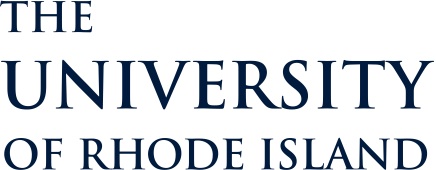Newswise — While the media and public focus on obesity and dieting, scant attention is given to the difficulties faced by families being able to afford adequate and nutritional food. In fact, in 2002, the World Health Organization identified hunger as the number one health risk facing the world. It is estimated that hunger affects 170 million children worldwide, while in the U.S., about 11 percent of all households experience food insecurity on a regular basis.
This fall, the University of Rhode Island 2004 Honors Colloquium, Food and Human Rights: Hunger and Social Policy, will offer a semester-long series of public lectures and events to explore the paradox of hunger in a society rich with resources. The series will provide a backdrop to understanding the complex causes of hunger and food insecurity and the varied societal responses aimed at ending hunger.
"Our impulse in response to hunger leads more than 90 percent of us to give to anti-hunger organizations—by making a monetary donation or simply by leaving a can for the local food drive," says Kathleen Gorman, director of URI's Feinstein Center for a Hunger Free America, who coordinates the series with William "Lynn" McKinney, dean of URI's College of Human Science and Services. "But the emphasis on charity has diverted attention and resources from addressing the true causes of food insecurity while at the same time, under-funded federal food assistance programs continue to restrict eligibility and discourage participation."
Ten percent of Rhode Island's population, about 100,000, is food insecure, over a third of whom are children. Almost 44,000 individuals use the network of soup kitchens, pantries and shelters to feed their families each month. Of those who rely on "emergency food," nearly 30 percent have someone in the household employed, 8 percent are elderly, 43 percent are children under 18, and 5 percent are homeless.
URI's 41st colloquium will provide an opportunity to celebrate the significance of food, to appreciate the power of its absence, to dissect the idea of food as a human right, and to ponder the paradox of hunger in a society rich with resources.
David Beckmann(r), president of "Bread for the World" will kick off the series on Sept. 14 with a talk focused on how to end the causes of hunger. Other speakers include U.S. Congressman James McGovern, who co-chairs the Congressional Hunger Center and a panel of local experts who will discuss a food security policy for Rhode Island.
Christiane Amanpour, CNN chief international correspondent, and Ben Cohen, co-founder of Ben & Jerry's Homemade, Inc. are among the presenters.
Events corresponding with the series include a photography exhibit at the URI Fine Arts Center Galleries, a mixed media exhibit at the URI Providence Campus Gallery, and a URI/Theatre Production of The Grapes of Wrath. All colloquium events, with the exception of the play, are free.
In addition to attending the public lectures, about 60 honor students will be enrolled in the accompanying class and will get the chance to delve even deeper into the issue of hunger and share what they learn with Rhode Islanders.
Most events take place at 7 p.m. in the Barry Marks Auditorium, Room 271, Chafee Social Science Center, URI campus. Visit online for the most current colloquium information or contact the URI Honors Center at 401-874-2303.
